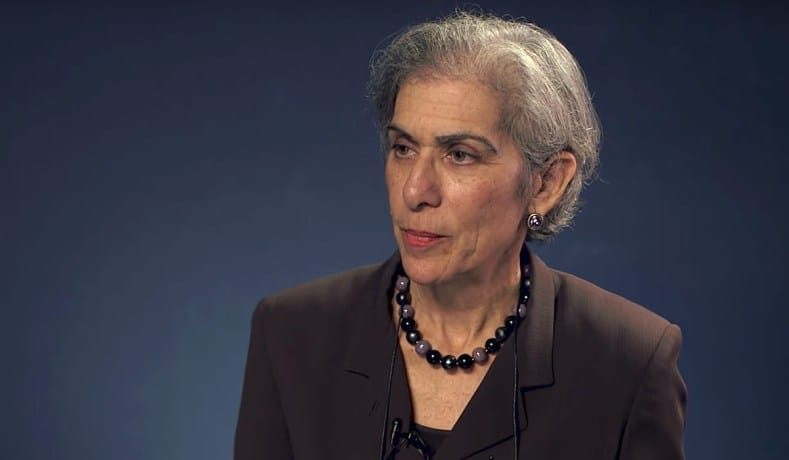
Amy Wax a UPenn law professor is removed from teaching first year law courses after calling black students inferior. Empirically incorrect or just a racist?
A white University of Pennsylvania law school professor has been removed from teaching required first-year law courses after saying she has never seen a black student graduate in the top quarter of the class.
The ouster comes after UPenn law school dean Ted Ruger said professor Amy Wax spoke ‘disparagingly and inaccurately’ about the performance of black students during an interview with Brown University economics professor Glenn Loury on the ‘downside of affirmative action’ last year.
‘I don’t think I’ve ever seen a black student graduate in the top quarter of the class, and rarely, rarely in the top half,’ Wax said at the time.
Wax defended her example based on using only the students is her classes as a sample size, saying ‘I’m going on that because a lot of this data is a closely guarded secret.’
UPenn Law Professor Amy Wax: Politically incorrect or a case of assessing empirical facts?
According to school officials, Wax is way off base, with influential alumni calling for her complete ouster saying in a statement attached to a petition: ‘The professor’s claims are in clear violation of the terms and spirit of Penn Law’s anonymous grading policy, and compromise the law school’s assurance that grades are maintained by the Registrar under strict scrutiny.’
‘It is imperative for me as dean to state that these claims are false: black students have graduated in the top of the class at Penn Law,’ Ruger reiterated. ‘Black students at Penn Law are extremely successful, both inside and outside the classroom, in the job market, and in their careers.’
Wax also claimed that the University of Pennsylvania Law Review has a racial diversity mandate, suggesting that black students had not earned their places. Speaking about black law students at Penn and peer schools, she went on to say that some of them shouldn’t even be attending college.
Ruger said it was imperative for him as dean to state that Wax’s claims are false.
‘Black students have graduated in the top of the class at Penn Law, and the Law Review does not have a diversity mandate. Rather, its editors are selected based on a competitive process,’ he said. ‘And contrary to any suggestion otherwise, black students at Penn Law are extremely successful, both inside and outside the classroom, in the job market and in their careers.’
Wax has tenure at the university and will retain her salary and her seniority. The nypost reports the teacher will continue to teach a full course load of electives but will not be teaching a mandatory first-year law school course.

UPenn Law Professor Amy Wax: Biased bourgeois or calling it for how she sees it?
It’s not the first time Wax has caused disconcert, with the law previously claiming Anglo-Protestant cultural norms are superior to others. She also claimed in a Philadelphia Inquirer op-ed last year that America should return to the bourgeois culture of the 1950s.
In that article, she condemned ‘the single-parent, anti-social habits, prevalent among some working-class whites,’ the anti ‘acting white’ rap culture of ‘inner-city blacks’ and the ‘anti-assimilation ideas gaining ground among some Hispanic immigrants’ while saying they were not suited for a ‘First World, 21st-century environment.’
And then there was this observation from Jonathan Klick, University of Pennsylvania Law School in a thoughtful essay, ‘I don’t think Wax is a racist, and I don’t care if she’s not politically correct. But I do believe arguments that only take note of (or, worse yet, merely assume) convenient empirical facts while ignoring inconvenient ones deserve to be criticized. This is true when you disagree with someone’s underlying normative views, but it’s even more important when you don’t.’







